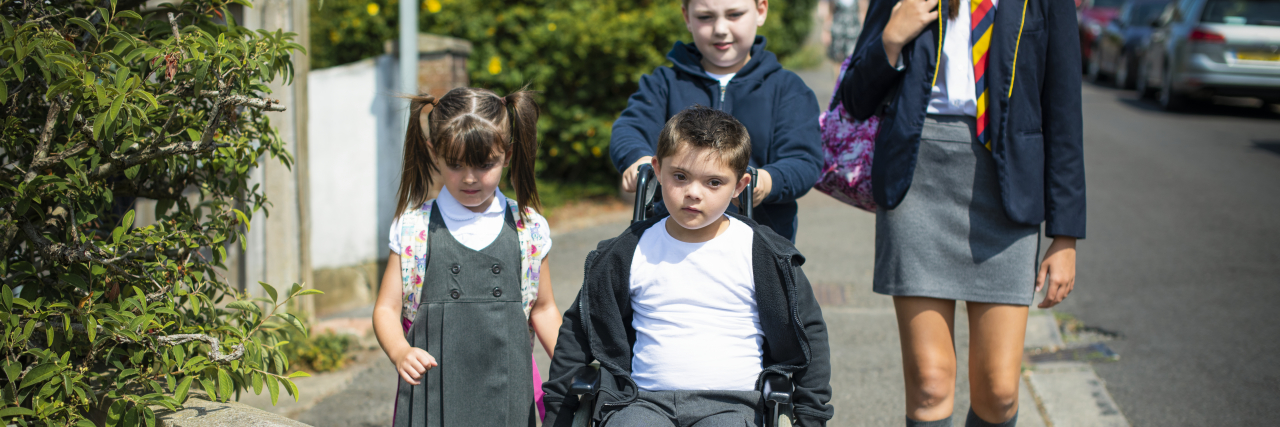As a parent to my 17-year-old daughter and a disability advocate, I have had the opportunity to speak to many types of groups — many of them with an audience of primarily women and/or moms. I have had a question come up repeatedly from mothers of typically developing children that I feel is so very valuable, and the subject needs to be brought to the surface.
Many women have asked me, “When my child sees a child with a disability or difference, what you suggest I tell them when I notice them staring?”
Part one of my answer always has to do with how our kids create teachable moments for kids and adults. Not everyone wants to hear this part of the answer. Think about it — teaching someone a new concept or skill takes time, right? Most of these moments are not filled with lengthy conversations — they are nuggets of time that present themselves at unplanned moments. So in order to capture someone’s attention and truly teach them something about your child’s actions, sounds, appearance, etc. that made them look in the first place, you have to be prepared to give an “elevator speech” — a brief, simplified version of your child’s disability story.
Strangers don’t usually have time, nor do they want to take the time to listen to details of your child’s birth and day-to-day life. This “elevator speech” should be a general summary of key points you would like to leave the parent with, so hopefully, they will continue the conversation with their child when they leave your presence. And hopefully, you have given them just enough information to answer their child’s questions.
Tell your typically developing child it’s OK to ask a question, and talk to them about polite, appropriate questions they could ask the child or their parent. Most typical moms are surprised at this advice. They don’t think we would want to be asked questions — but many of us do. We’d rather take a few minutes to create a teachable moment at the grocery store or park than allow a child to stare and never get their questions answered. Without a chance to learn, their child could become one of the students making fun of our kids at school. None of us want that. Ask questions, be supportive to the parent, and let your kids see the interaction between you so they know it’s OK to talk about children with disabilities in a positive way.
If you’re a parent of a child with a disability, I hope you will prepare an “elevator speech” about your child, and visualize yourself interacting positively with typical families.
The second part of my answer goes way beyond these short conversations. The more teachable moments parents of typical kids create by asking parents of kids with disabilities respectful questions, the more they are teaching their child to talk to kids with disabilities. Because we allow the conversations to happen as the kids grow, the goal is that they will be more empathetic towards kids in their class who may act, look or walk differently than they do. And maybe they become the children who impact our children in a positive way one day because they were taught that compassion wins.
Kind, thoughtful questions and words about children who may learn differently than they do can shape typical children into caring adults, who in turn repeat the cycle. At their school, university, on their job site — everywhere. It all starts with kind, hopeful, two-way conversations.
These interactions can lead to friendships that kids with disabilities are longing for. They level the playing field and break down barriers between kids with and without disabilities. They can impact schools and communities in ways that can’t be measured by numbers and data. These conversations take away the fear of the unknown and allow dialogue between families that is so very necessary in the disability community.
If you are a parent of typically developing children, my hope is that you will be strong enough in moments that come up with your kids to be brave. Ask questions and model appropriate behaviors and actions toward families of kids with disabilities.
So how about it?
Next time you’re in the grocery store with your child and you see them looking, teach them to care, not stare.
Getty image by Rawpixel.

